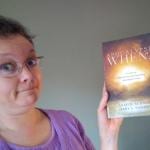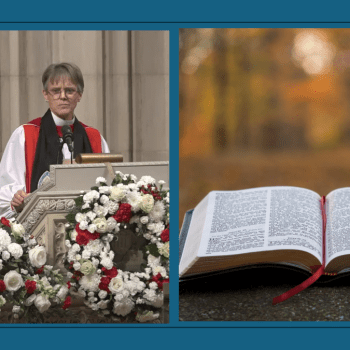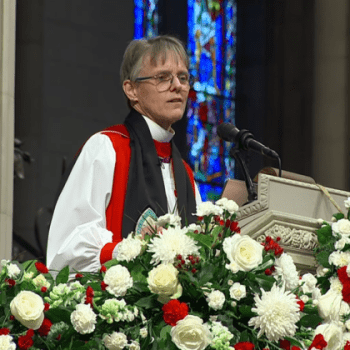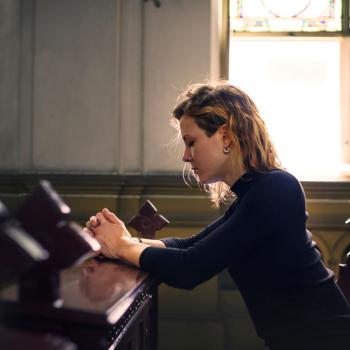This sermon, “Gathering up the Fragments,” is adapted from the book I co-wrote with Jerry Sumney, Apocalypse When?: A Guide to Interpreting and Preaching Apocalyptic Texts. Think about how you might take the images around fragments and brokenness and adapt them to your own context.
Have you noticed? There is a touch of melancholy in the late fall wind. It is a sad time of year.
I first felt this sadness a few weeks ago as I walked through the yard and kicked through the leaves blowing across the browning grass. Scattered fragments of the grand green trees of summer. I drive past the farmers’ fields which had been verdant and thriving for so many months, producing abundant harvests to feed the multitudes. Today the shriveled stalks are small and brown, draping limply to the cold ground.
“We all fade like a leaf,” says Isaiah, “and our iniquities, like the wind, take us away.” (Isaiah 64:6b.)
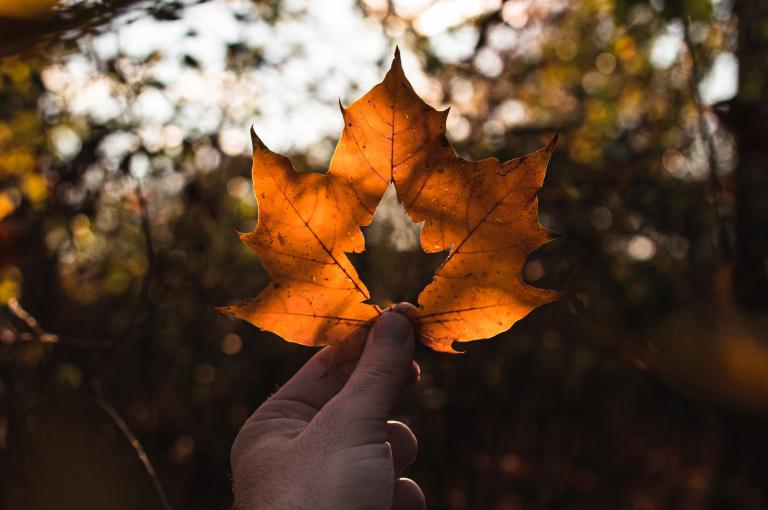
Oh, we try to not to worry. We try not to feel that melancholy.
Some try to drown it out with Christmas carols played round-the-clock since the day after Halloween. Others try to shine the holiday lights into it and dispel the sadness. Too many try to ignore the gathering darkness by crowding into malls and stores, hoping they can buy their way out of it. But here in the northern hemisphere, the melancholy descends on us as surely as the darkness of the winter solstice envelopes our ever-shortening days.
It’s no wonder we feel anxiety, especially in light of this past year that our country and the world have endured.
An unprecedented pandemic has infected millions and killed far too many. Climate-fueled natural disasters hit from all sides, with hurricanes, floods, and wildfires of epic proportions. The U.S. faced unabashed corruption and narrowly averted the loss of democracy in this polarized election season. Political upheaval, war, and violent conflict continue to ravage countries and regions around the globe. Poverty decimates entire populations of people. And protests against systemic racism swept across the U.S. in a long-overdue reckoning with America’s “original sin.”
It’s enough to make you feel as if we’re living in the end-times that Jesus spoke about in the Gospel of Mark.
“In those days, after that suffering, the sun will be darkened, and the moon will not give its light, and the stars will be falling from heaven, and the powers in the heavens will be shaken” (Mark 13:24–25).
Biblical scholars date Mark’s Gospel either to just before or just after the fall of the temple in Jerusalem, probably 40 years after Jesus’ death and resurrection. Mark was writing to a group of Christians who were wrestling with existential questions in light of this traumatic event. Is God not powerful after all? Has God rejected us? Does God not care about this sacred space?
As I stand looking at the remnants of our fields and gardens, it causes me to wonder about this passage from Mark.
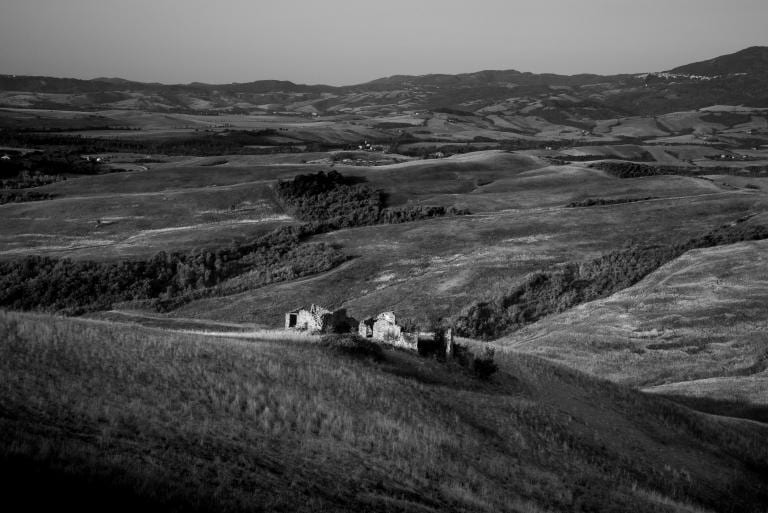
What happens after the suffering?
After the sun goes dark, the moon fades away, and the stars fall? After the tremors of the heavens die down?
What happens to all those broken pieces of people’s lives?
What happens to all the torn and tattered shreds of the messes we have made? As the author Flora Slosson Wuellner puts it: “What does God do with the useless leftovers of the universe, the unwanted, unlovely brokenness…?” (“A Broken Piece of Barley Bread”; Weavings, 14, 6, November/December [2004]: 7-9.)
Jesus offers this answer.
“Then he will send out the angels, and gather his elect from the four winds, from the ends of the earth to the ends of heaven” (Mark 13:27).
Here is the key word: gather. God will gather up the fragments.
And once gathered, God will transform them into something new and beautiful. Something we would never have thought could come from such a motley assembly of brokenness.
As I stood in my yard contemplating this thought, I realized that it was as near to me as the cycle of life going on all around me. Because Jesus goes on to say this.
“From the fig tree learn its lesson: as its branch becomes tender and puts forth its leaves, you know that summer is near. So also, when you see these things taking place, you know that God is near, at the very gates” (Mark 13:28–29).
All these fallen leaves that I mourn will eventually become part of the soil and nutrients that feed the very tree from which they fell. All the broken pieces will be gathered and reassembled into something new and creative.
God is here, even in this troubled time, just as God was with the people who originally heard Mark’s Gospel. God gathers the pieces together.
In Mark’s community, they were dealing with their own trauma—the destruction of the temple in Jerusalem. This was the site where they worshipped God. It was the most sacred of buildings where God made Godself present on earth. Seeing it overrun and destroyed by Roman soldiers caused them to question everything they believed.
But Jesus’ words are meant to tell the hard truth so that we can receive a startling revelation.
God is not contained only in sacred buildings made by human hands. God’s power transcends even the temple. So we need not succumb to devastation when our temples fall. Because God is doing a new thing, bringing to us a future made up of these broken pieces.
This is good news for us who are the fragments of this world. Wuellner writes:
What better [message of hope] for our throw-away abandoned people, our broken, fragmented humanity; our own individual shattered dreams, hopes, trust; all the shards of lives which have never been realized or fulfilled in wholeness…The core of Jesus’ mission, more profound than even healing and restoration, is transformation . . . When re-formed by God’s hands [the world and we] are fulfilled and empowered in a way we had never thought possible. (Wuellner, 8, 9).
This is why Jesus’ words are so important. Because they help us understand what to do as we’re waiting for the fulfillment and the power to come from God. We are to remain alert, keep our eyes open and our minds attuned to catch glimpses of the God’s work.
When we used to live in Philadelphia, my husband and I would go to a place called South Street and see an old, run-down building that someone had covered with a gorgeous mosaic of discarded glass and tile. I thought, what a powerful message in the heart of the city.
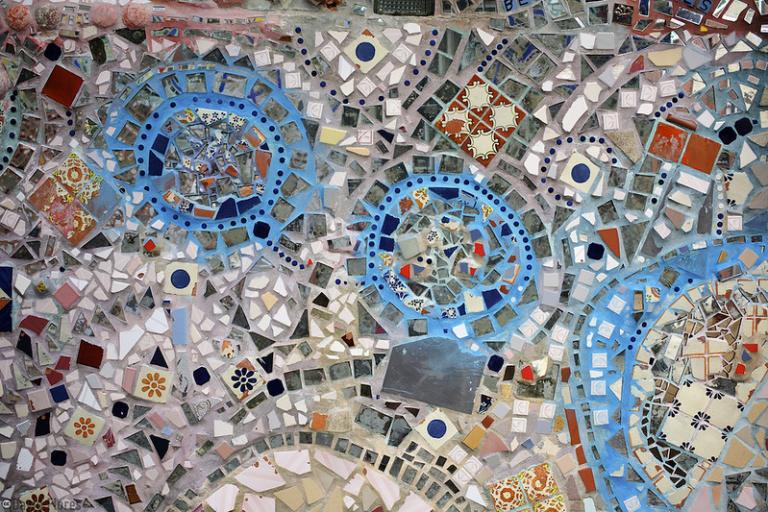
“Listen, Philadelphians,” it seemed to say, “there is no junk! You need only take the time to gather the pieces together and open your eyes to the vision that God wants you to see.”
Or think of the quilts that the church sewing group makes. They’re made up of discarded pieces of fabric that fell away from the cutting table, faded after years of use, outgrown like yesterday’s dresses. But like the mosaic on the side of that building, with the right vision these fragments can be gathered together and transformed into something that gives comfort and beauty as a quilted blanket for a baby or someone in need.
No fragment is worthless in God s eyes.
Like the patches of cloth in a colorful quilt. Like the side of this building on South Street covered in a mosaic of broken pieces, transforming the ugliness of a city block into a glimmering rainbow of artistic wonder. This is how God will gather up even us, broken and fragmented, and form us into the beautiful mosaic of the kingdom.

This is a life-giving message on this first Sunday of Advent.
Wedged between the holidays of Thanksgiving and Christmas, this is one of those awkward Sundays that we’re not quite sure what to do with. It is a fragment, a leaf fallen between the cracks. It’s a Sunday that reminds us of all that is broken and fragmented in this world.
This is a Sunday when we stand in our empty gardens and fields. We remember All Saints Sunday in the not-too-distant past, the empty places at our holiday tables where our loved ones once laughed and ate with us.
This is a Sunday that reminds us of what and who we have lost as well as the losses that are still to come.
But one of my former parishioners, Wanda, once reminded me of something important. There is a particular point in the liturgy which brings the memory of those saints into the very presence of God within our worship. It is the introduction to the Sanctus when the pastor concludes with these words: “And so with the hosts of heaven, we praise your name and join their unending hymn.”
“I like to make sure that people understand the significance of that phrase,” she wrote to me in a letter. “At this particular point in the liturgy my mind recalls family members who have died. Each Sunday it is a time when there is a feeling of closeness to those I knew and loved and especially those I shared communion with. They are now the hosts of heaven.” (Letter from E. Wanda Quay, Oct. 28, 2005).
This part of the liturgy is a reminder that we still share our life and our faith as we join in singing, “Holy, Holy, Holy.” In those moments of the Eucharist that follow, there is no gap that separates us from those who have gone ahead. That is a part of the mystery of Holy Communion—in and through and with and under.
Wanda’s letter reminds me that God gives us a tangible sign of this fragment-gathering, right here at the communion table, even as we are facing endings and brokenness.
Each one of us is like a fragment of Christ’s broken body. But when we share in this meal, we are rejoined and transformed into something miraculous and beautiful. Receiving communion is like being wrapped up in one of those quilts that the sewing group makes. Or being placed into a beautiful mosaic high on a building overlooking the city.
So, as we stand in our own darkened gardens, blown by the chilly, melancholy wind, we remember that God stands with us.
God surveys the landscape, looking for every fragment that might be gathered and transformed, like fallen leaves forming the soil for tomorrow’s grand green trees. Like broken pieces of tile and glass reworked into a magnificent piece of art on a city building. Like discarded swatches of fabric sewn into a beautiful, warm quilt.
…everything that is hurt, everything
that seemed to us dark, harsh, shameful,
maimed, ugly, irreparably damaged,
is in [God] transformed
and recognized as whole, as lovely,
and radiant in [God’s] light
we awaken as the Beloved in every last part of our body.
This is a poem by the theologian Symeon who lived in the first century. (Symeon [949–1022 C.E.], The Enlightened Heart: An Anthology of Sacred Poetry, 38–39). It captures the hope that we cling to in this first Sunday of Advent. When you receive communion, remember that you, too, are lovely and radiant in God’s light.
All the broken pieces, all the broken people, even the brokenness of Earth itself—all of it is beautiful in God’s sight.
In this holy meal, we remember that all of us are gathered and transformed by God. Awaken as the Beloved in every last part of your body. Amen.
Read also:
Learning to Welcome the Dark: Advent 1
Rooted and Rising in Advent: 28 Days for Connecting with Earth
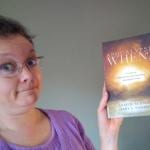
Leah D. Schade is the Assistant Professor of Preaching and Worship at Lexington Theological Seminary in Kentucky and ordained in the ELCA. Dr. Schade does not speak for LTS or the ELCA; her opinions are her own. She is the author of Preaching in the Purple Zone: Ministry in the Red-Blue Divide (Rowman & Littlefield, 2019) and Creation-Crisis Preaching: Ecology, Theology, and the Pulpit (Chalice Press, 2015). She is the co-editor of Rooted and Rising: Voices of Courage in a Time of Climate Crisis (Rowman & Littlefield, 2019). Her latest book, co-written with Jerry Sumney is Apocalypse When?: A Guide to Interpreting and Preaching Apocalyptic Texts (Wipf & Stock, 2020).
Leah is also co-founder of the Clergy Emergency League, a grassroots network of clergy that provides support, accountability, resources, and networking for clergy to prophetically minister in their congregations and the public square in this time of political upheaval, social unrest, and partisan division.
Twitter: @LeahSchade
Facebook: https://www.facebook.com/LeahDSchade/


